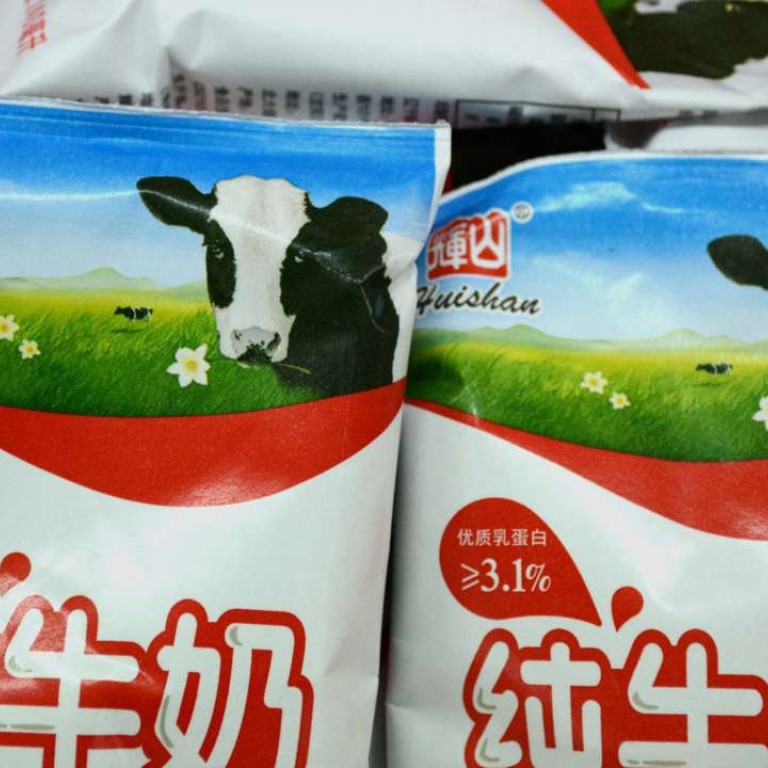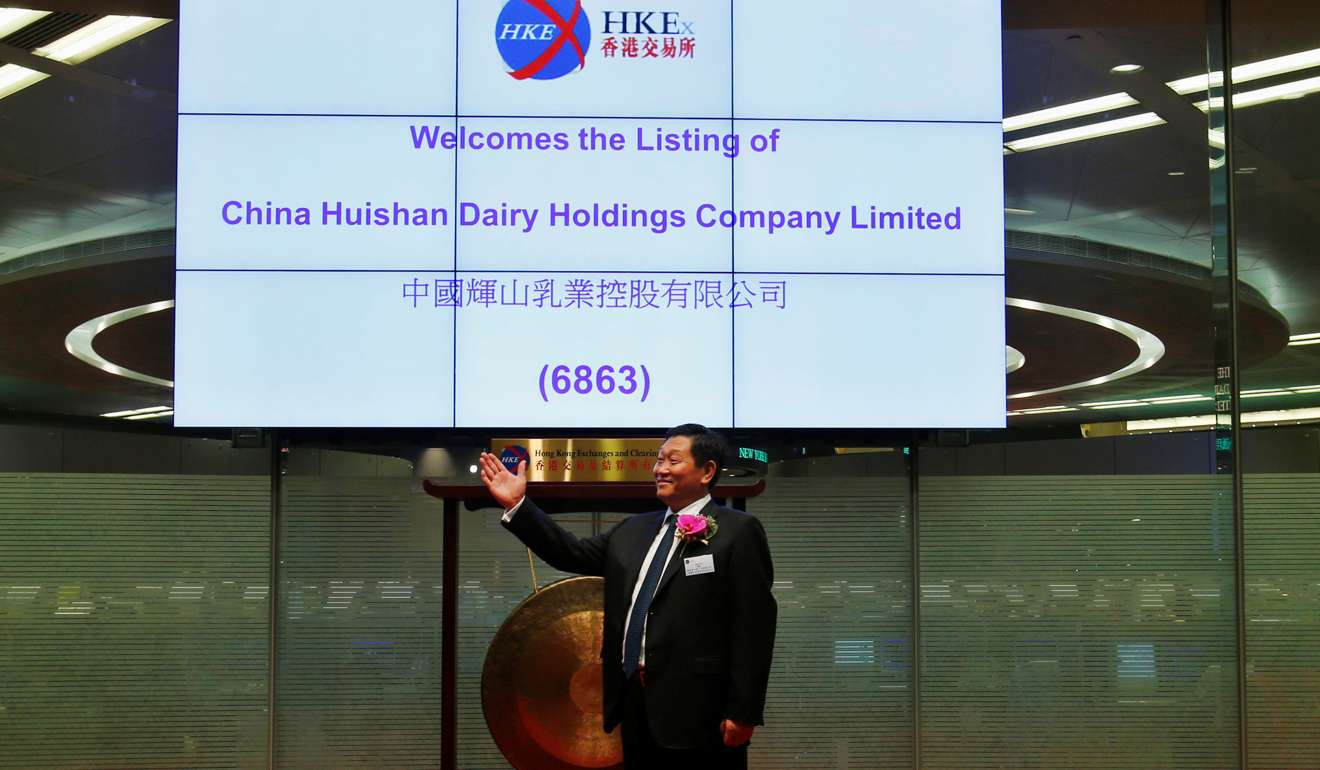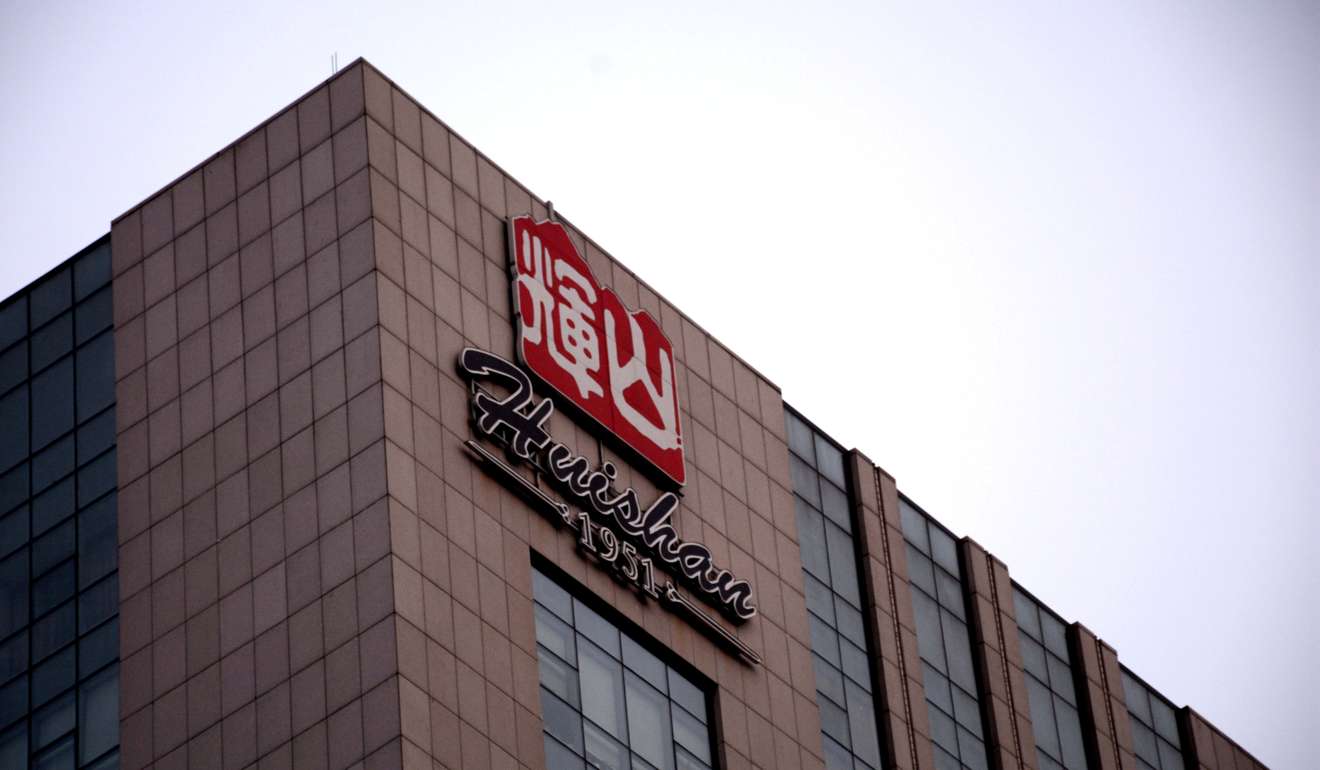
Until it breaks: China debt risks exposed after 85pc fall in dairy firm’s stock price
Beijing has told local cadres to make financial risk prevention a priority this year
At least 23 Chinese banks lent money to a dairy firm in northeastern China for years until it racked up debts of more than 10 billion yuan (US$1.45 billion) and was unable to pay its interest bill.
Then the local government stepped in.
The Liaoning provincial government’s finance office called an “urgent” meeting of all major creditors of Huishan Dairy on Thursday, and asked them to ensure “their loans would be rolled over in the normal way”, the company said in an announcement on Tuesday.
It added that a plunge in its stock price had undermined the banks’ confidence in the company. An earlier report by mainland internet news portal Netease.com said the local government had offered to pay 90 million yuan in cash to Huishan Dairy in exchange for a plot of land in order to boost the company’s coffers.
However, the calling of the urgent meeting was counterproductive, only making it clear to creditors how bad the company’s financial situation was. The company’s stock price plunged in Hong Kong on Friday morning, losing 85 per cent before the company suspended trading and wiping out US$4 billion of shareholder value.
Analysts said the local government’s failed attempts to save the company following allegations by a US firm in December that it had been cooking its books exposed the deep links between government and business in China and the hidden debt risks in the mainland economy, despite Beijing’s repeated assurances that everything is under control.

With Beijing telling local cadres to put financial risk prevention at the top of their agenda this year, ahead of a reshuffle of the Communist Party’s top leadership, the government of Liaoning, a rust-belt province which reported a shrinking of economic output last year, would not be alone in trying to buy time for unpaid debts or even covering up financial risks.
To prevent contagious debt defaults, China’s banking regulator has encouraged banks across the mainland to form consortiums dealing with specific borrowers. Such “creditor committees”, usually led by the biggest creditor, roll over existing loans for a heavily indebted borrower and mobilise members to keep lending.
Under such arrangements, almost all debts will look healthy until the day of reckoning. Huishan Dairy, a 60-year-old firm with about 12,000 employees and 200,000 dairy cows, created its creditor committee with support from the local government. It is chaired by Bank of China, the largest creditor.
There were 12,836 creditors’ committees on the mainland at the end of last year, involving combined debts of 14.85 trillion yuan, Cao Yu, a vice-chairman of the China Banking Regulatory Commission, told a press conference earlier this month.
Professor Chen Zhiwu, an economist at the University of Hong Kong, said the committees had become vehicles for local governments to “maintain stability” at the cost of accumulating debt risks, with many local governments, especially in less developed places, prone to intervening in defaults to protect local jobs and tax revenues.

“China’s debt contract is not a 100 per cent contract [in Western terms]. If a default looms, local governments tend to ask creditors not to force repayment but sit together for negotiations. So such contracts can’t be implemented at all,” Chen told reporters on the sidelines of Boao Forum for Asia in Hainan over the weekend.
Fitch rating chief economist Brian Coulton said that while China had started to show some financial discipline in recent years by allowing dozens of debt defaults, the general sentiment was still to avoid bankruptcy or defaults.
“Overall, there is still quite bit of moral hazard and implicit guarantee,” he said.
The blurred lines between businesses, banks and governments often make it hard to paint a true picture of China’s debts and financial health.
According to the banking regulator, the non-performing loan ratio is below 2 per cent. One can only guess how many loans are as risky as the ones to Huishan Dairy.
Huishan Dairy raised US$1.3 billion in an initial public offering in Hong Kong in 2013 but spent far more than that trying to develop a complete dairy industry value chain from feed grass to milk products, and a few plants it had invested in had been abandoned, the Beijing News reported on Sunday, after reporters visited the company’s production bases in Liaoning.
Huishan Dairy was accused of financial fraud by America’s Muddy Waters Capital, a China-focused research firm, at the end of last year. It said the company was “worth close to zero”.
Huishan issued a statement defending itself and said the Muddy Waters report was “groundless”.
The company said in its announcement on Tuesday that Bank of China, Jilin Jiutai Rural Commercial Bank and Zheshang Bank had “indicated” at Thursday’s meeting that they had continued confidence in it, but “there is no assurance that such banks’ views would remain unchanged” after the 85 per cent fall in its stock price on Friday.
Trading of the company’s stock in Hong Kong remains suspended.

